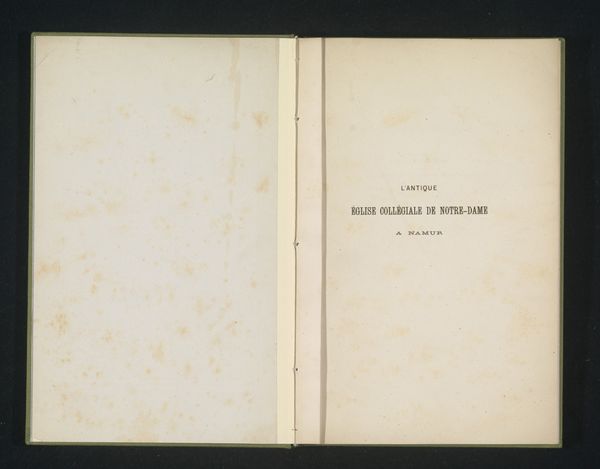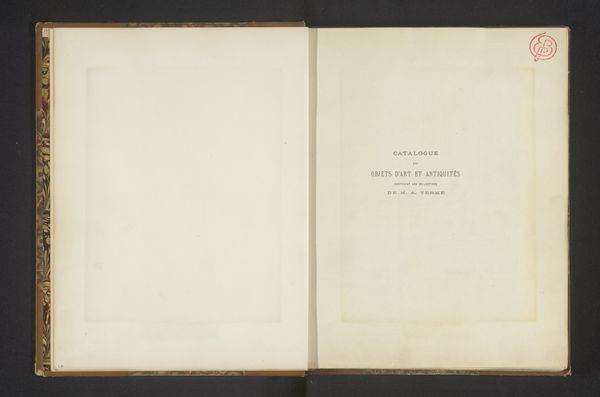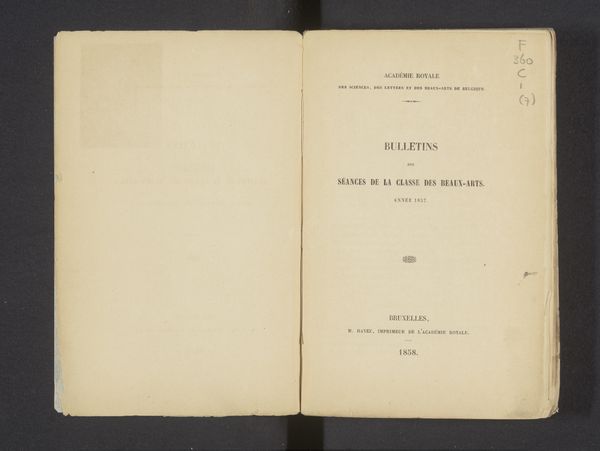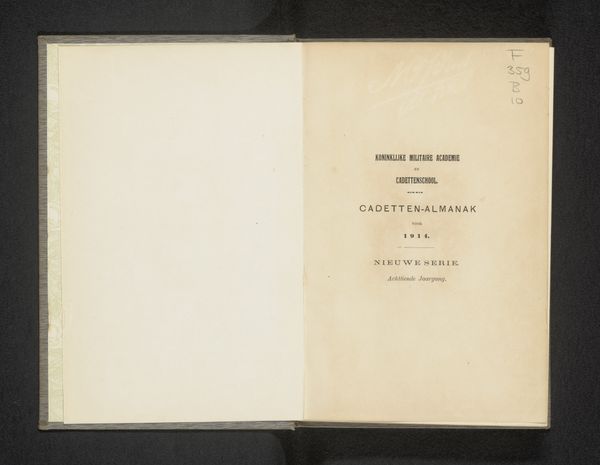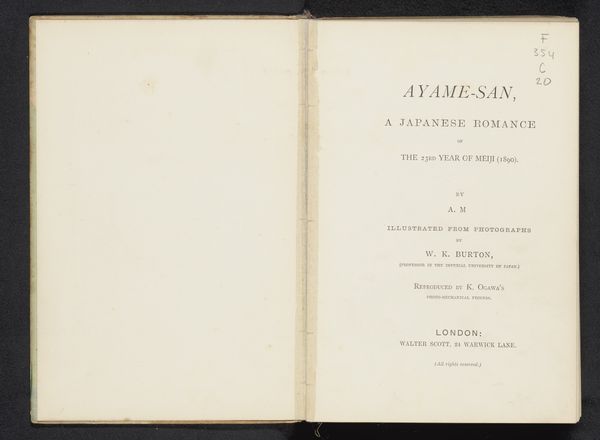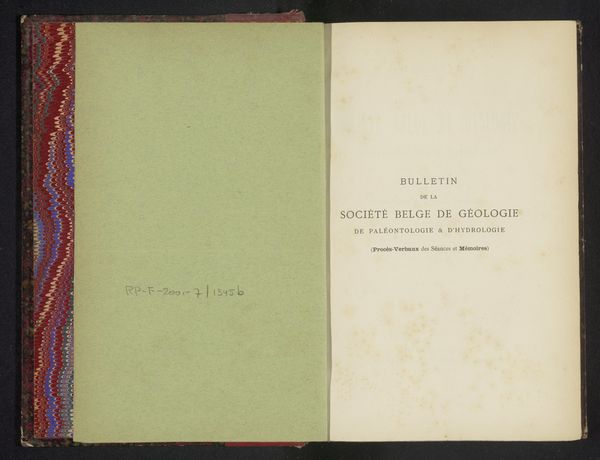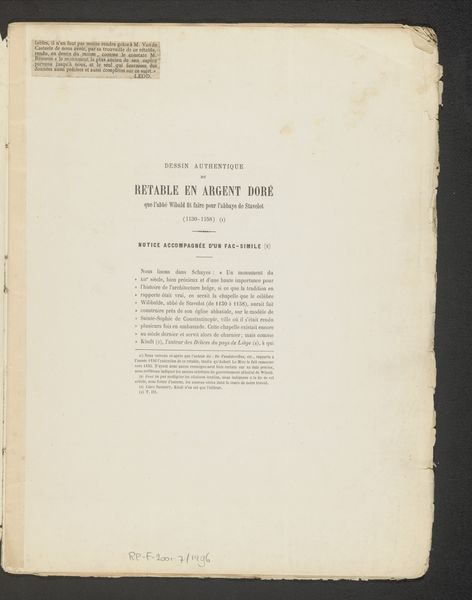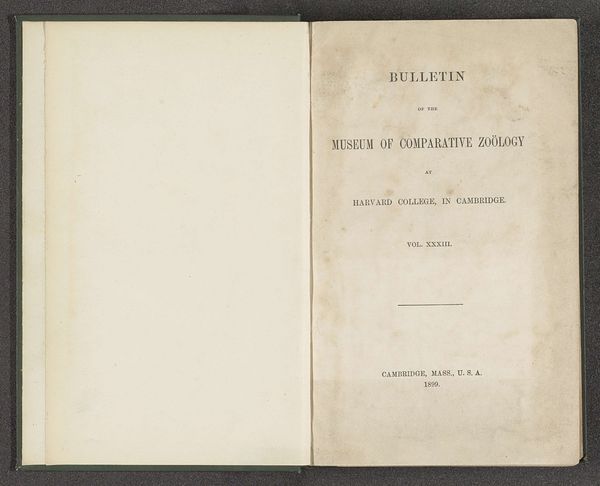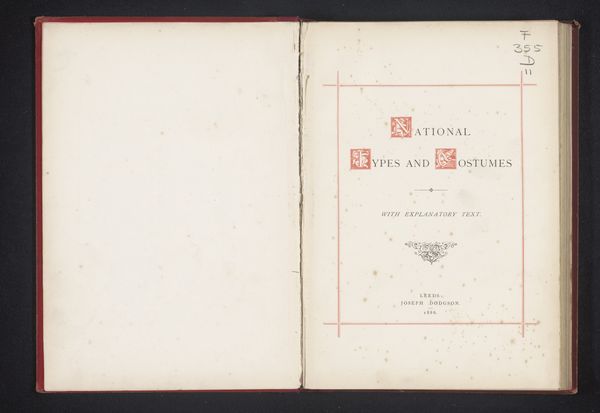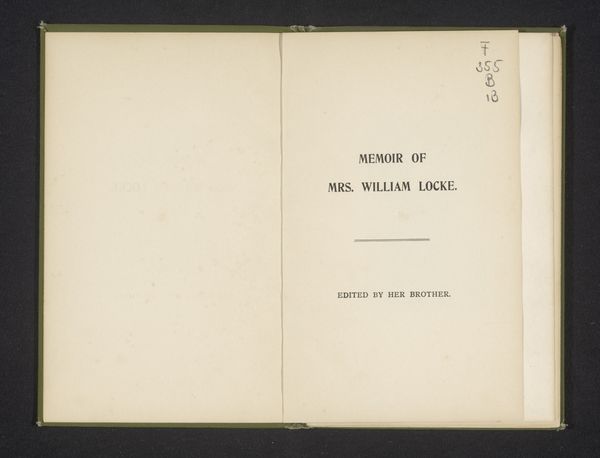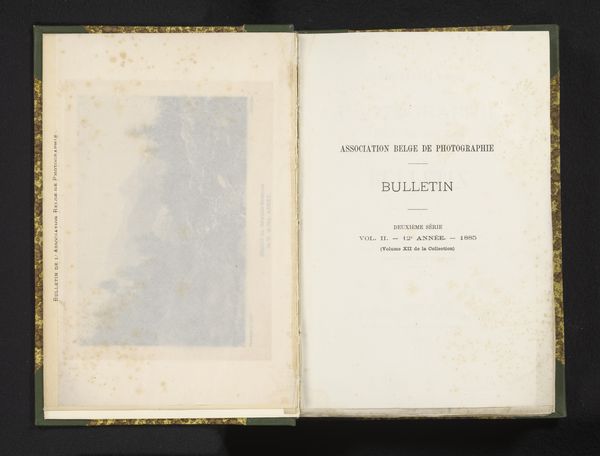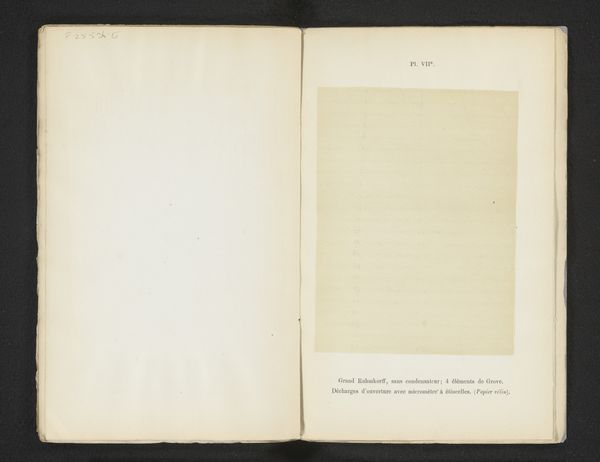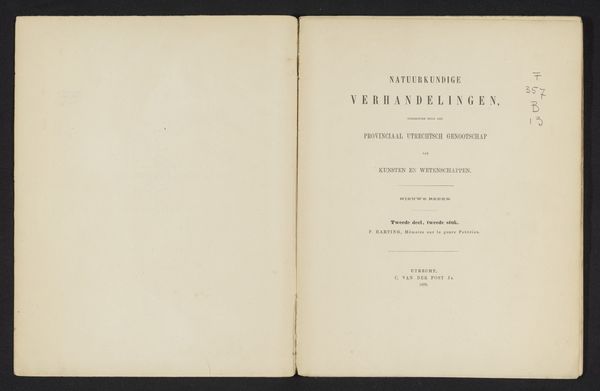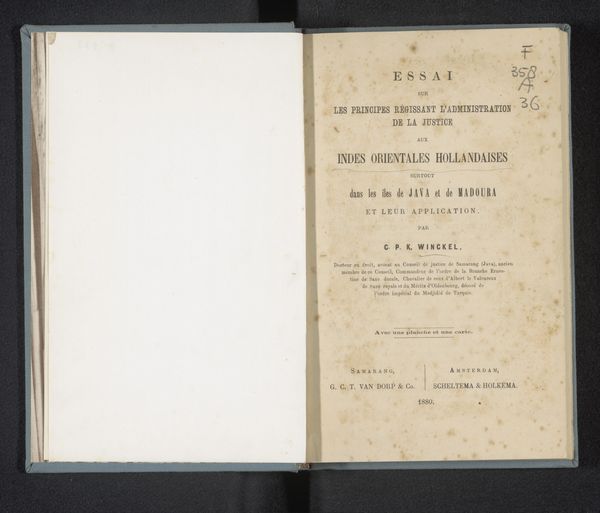
Bulletin de la Société belge de géologie, de paléontologie et d'hydrologie 1889
0:00
0:00
#
aged paper
#
homemade paper
#
personal sketchbook
#
hand-drawn typeface
#
fading type
#
watercolour bleed
#
watercolour illustration
#
sketchbook art
#
watercolor
#
historical font
Dimensions: height 250 mm, width 178 mm, thickness 63 mm
Copyright: Rijks Museum: Open Domain
Editor: Here we have "Bulletin de la Société Belge de Géologie," created in 1889 by Polleunis et Ceuterick. It seems to be an aged publication, perhaps a journal or a collection of scientific writings. It's interesting how the printed text and aging paper gives off such a nostalgic feeling. How should we interpret this from an activist point of view? Curator: It is a fascinating piece. Consider that geology, paleontology, and hydrology were rapidly developing fields in the late 19th century. This bulletin represents the formalization of knowledge production, often excluding marginalized voices. Whose knowledge was being prioritized here, and whose was being ignored? The 'Société Belge de Géologie' was likely a space dominated by upper-class, white men. Editor: So you're saying it represents a power structure in science? How can we look closer into the layers that build that context? Curator: Exactly. Consider the context of Belgian colonialism. Natural resources from colonized lands were extracted and studied, fueling these scientific societies. The very ground they explored was the ground upon which colonial power structures were built. This Bulletin is a testament to a specific era, marked by colonialism, scientific advancement, and the consolidation of power in certain groups. Were Indigenous perspectives included in these studies of land and water? Highly unlikely. Editor: So it’s not just a science journal; it’s a historical document that reflects social inequalities of the time. Thank you for making the historical context clear, highlighting how knowledge can be produced and controlled by dominant groups. Curator: Precisely. And by questioning that history, we challenge present-day inequalities in scientific and academic spaces.
Comments
No comments
Be the first to comment and join the conversation on the ultimate creative platform.
